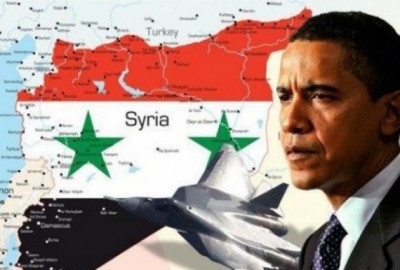Edited by Kyrstie Lane

Syria, Die for Obama? No, Thank You.
The Syrian crisis has proven to be, in fact, very insidious. It is the fuse that could explode the entire Middle Eastern powder keg.
As noted by the Russian Foreign Minister Lavrov, the "evidence" put forward by the Obama administration regarding the alleged use of gas by Assad is the usual rubbish, emanating from services shrouded in mystery, precisely because it does not hold up under examination. The secret revealed, as usual, a crucial ingredient needed for cooking up an excuse for military intervention. It really is amazing that the United States does not give any concrete evidence other than in maintaining the need for confidentiality. But this is what happens. This is because Washington sees as if it has wool over its eyes. Assange, Snowden and Manning have undertaken alleged activities that are not exactly espionage, but clarification of the truth. Today, more than ever, it is necessary that the dusty halls of diplomacy and intelligence agencies be floodlit by the light of democracy and the freedom of information.
The intervention responds to the rest of the strategic needs of the Obama administration, which is hounded by hawks. A blow more or less limited to Syria should raise the president’s price and guarantee, on an international level, the renewed dominance of the United States — dominance which has long been based mainly on the use of military instruments. It is only natural that almost all of the other countries are not present and that even the British parliament spoke out against this umpteenth adventure: a senseless war fraught with grave risks for all of humanity.
Another element that should be emphasized is the need for a peaceful and diplomatic solution for these crises and conflicts. That might make the warmongers smile or roar with laughter, but it constitutes the only possible way to resolve the crisis, in harmony with international law and the charter of the United Nations. Insistent upon negotiating are the Democratic Jurists, who published the following statement a few days ago:
"The Democratic Jurists express firm opposition to any external military intervention in the Syrian conflict because they lack evidence about the responsibilities of the Assad regime (we cannot forget the phantom weapons of mass destruction attributed to Saddam Hussein) and because the interventionist initiative of the United States, France and Britain expropriates the United Nations of its powers (remember the NATO intervention in Libya and, in the past, a similar intervention in Kosovo) and finishes with configuring a true illegitimate use of force. We readily understand the strong opposition that occurs anywhere in the world to be based on a hypothesis of armed intervention to punish Assad for his alleged culpability in the use of chemical weapons. The Syrian conflict must be resolved through negotiations and by giving space to civil society, respecting the prohibition of nonintervention in internal affairs, which is a traditional and still valid principle of international law. The United Nations aims to clarify what actually happened on Aug. 21 and in other circumstances and to impose respect for international humanitarian law to all parties involved in the conflict so that the Syrian people can be given the opportunity to express their willpower in a peaceful and democratic fashion.”*
For the moment, Italy has not taken a position worthy of note. With admirable exercise in balancing, Defense Minister Mauro (who seems to have emasculated the experts who are probably guilty of too much clarity) tends to run with the hare and hunt with the hounds. By comparison, Craxi and Andreotti seem like titans of international politics. But after all, the good Mauro speaks of “contagious reason,” and from a member of the Letta government we evidently cannot expect much more. All the more reason to be of service, according to Mauro, only after taking a moment to “pause for reflection.” This is tantamount to saying that if the U.S. Congress votes in favor of military involvement, their vote would be a result of that reflection and so, goodnight. It would, however, give an air of more determined opposition to the plan of the U.S. and NATO in the search of possible alternatives. Opposition and alternatives are now more necessary and urgent than ever in the face of the paradox that the president of the United States, who was awarded the Nobel Peace Prize (for reasons that are still not clear to most), is making a truly unfortunate choice in favor of war.
* Editor’s Note: The Democratic Jurists, or “giuristi democratici,” is an organization of Italian lawyers who promote democracy, equality and human rights.

